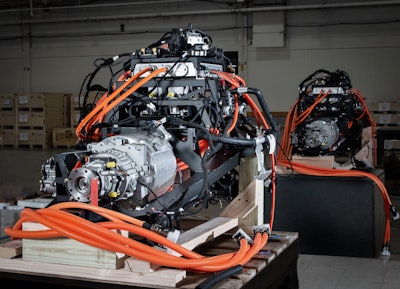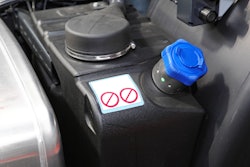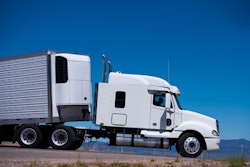
The Supreme Court’s recent decision in West Virginia vs. EPA to reduce the EPA’s authority in regulating carbon emissions means—at least for the time being—that Congress, state policymakers, and the markets must now be the primary drivers behind our transition to a clean energy economy.
Some are under the belief that this ruling struck down the most effective mechanism for driving a sustainable future in the U.S. altogether with broad, potential impact ranging from controlling and reducing carbon emissions from power generation to mitigating vehicle emissions.
I don’t see it that way.
In fact, I believe environmentalists, businesses and investors alike would be remiss to throw their hands up based on what the federal government is or isn’t doing when it comes to the future of commercial vehicle electrification.
Why? For one, this problem we are facing is much bigger than any government. As a leader in the electric commercial vehicle industry for nearly 15 years, I meet and talk to passionate people every day—elected officials, consumers, and business leaders—and these individuals are not deterred easily. Folks like us get into the clean energy business for a simple reason: we want a cleaner, better future. Of course, I can’t directly speak for the whole country, but I am willing to bet you’d be hard-pressed to find an American who doesn’t want a cleaner, safer environment for ourselves and our children.
It is also important to note that the Supreme Court ruling seems intended to limit the EPA’s ability to regulate structural emissions to protect coal plants from possibly being forced to cease making power altogether and does not necessarily disrupt the value proposition of electric fleet vehicles.
 Lightning eMotors
Lightning eMotors
Moreover, the decision does not diminish the regulatory and funding tailwinds at the state and corporate level that are keeping companies focused on achieving net zero emission by the end of the decade. Thirty-four states have climate action plans to reduce greenhouse gases/carbon emissions by 25 to 50% as early as 2030. Not to mention, investor focus on corporate regulatory and reporting requirements (ESG) has continued to increase despite any enforcement from government bodies.
Most importantly, however, this decision does not negate the compelling financial proposition of operating electric vehicle fleets versus traditional gas or diesel-powered vehicles, especially in today’s economy where interest rates are climbing, fuel prices are surging, and the costs of parts and labor are following suit. Fleets that can reduce their operating costs by up to 80% can still see a very compelling ROI on their investment.
Regardless of the current political environment, EVs have proven to be a better long-term, sustainable solution for society, and one ruling by the Supreme Court will not deter those of us who want to live in a cleaner, healthier world.
While there has been considerable discussion since the ruling that this decision could reduce or stall the progress of business’ adoption of electric fleet vehicles, I am confident our current progress toward a greener future will not be slowed.
Tim Reeser, CEO and founder of Loveland, Colorado-based Lightning eMotors (NYSE:ZEV), is a senior-level technology executive, entrepreneur, and venture investor in transportation technology, cleantech and software with over 25-years of experience building international executive management teams and growing companies organically and through mergers and acquisitions. A frequent industry speaker and presenter, Tim holds a bachelor’s degree in mechanical engineering from Colorado State University.











